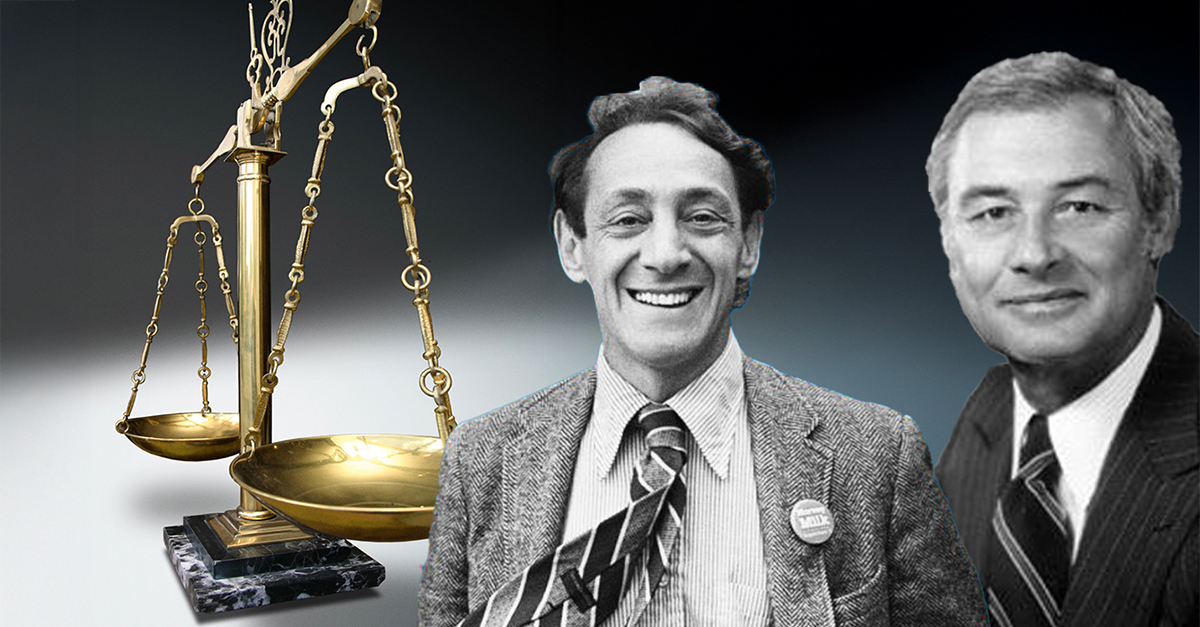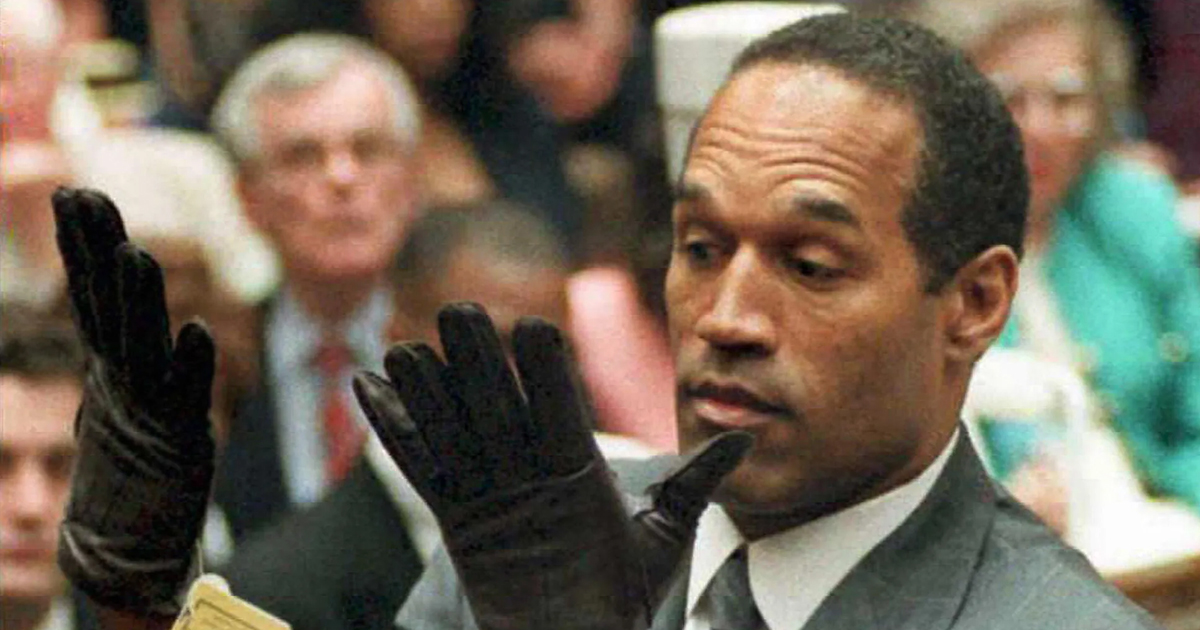Few courtroom defenses in American legal history have captured the public imagination quite like the “Twinkie defense.” Coined by reporters covering the 1979 trial of Dan White, the phrase became shorthand for a perceived miscarriage of justice—where junk food, of all things, seemed to play a role in reducing his conviction and sentence. But the true story is more complicated—and a lot more disturbing.
A Double Slaying In San Francisco
Dan White, a former San Francisco city supervisor and ex-policeman, shot and killed Mayor George Moscone and fellow Supervisor Harvey Milk in November 1978. White had recently resigned his post but sought to be reinstated. When Moscone refused—allegedly under pressure from Milk—White entered City Hall through a basement window, bypassing metal detectors, and gunned down both men with his .38 revolver.
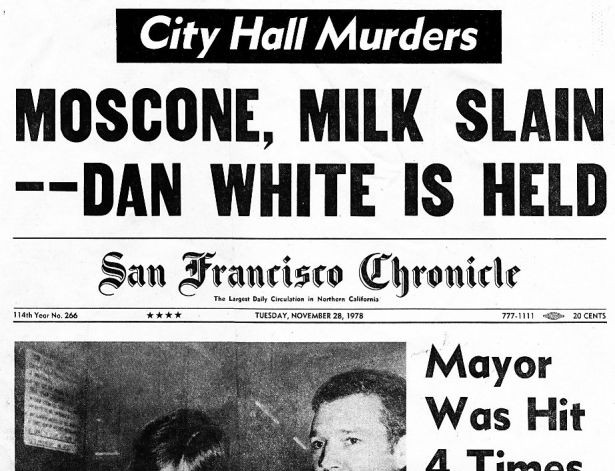 The San Francisco Chronicle, Wikimedia Commons
The San Francisco Chronicle, Wikimedia Commons
A City In Mourning And Fury
Milk was the first openly gay elected official in California, and his assassination sent shockwaves through both the LGBTQ+ community and the broader public. The slayings, and the cold, calculated manner in which they were carried out, seemed to offer a textbook case of premeditation. Many assumed White would face the full weight of the law and be sentenced accordingly.
The Defense’s Unusual Strategy
At trial, however, White’s defense team presented a case based on diminished capacity. They argued that he was suffering from depression and impaired judgment. As part of their case, they cited his recent lifestyle changes—pointing out that White, once a health-conscious man, had begun consuming sugary junk food like Twinkies and Coca-Cola. This, they claimed, was evidence of his deepening depression.
Not Really About Twinkies
Contrary to popular belief, the defense did not argue that Twinkies caused White to go after Moscone and Milk. Rather, his junk food binge was framed as a symptom of his mental state, supporting the larger claim that he was not in full control of his faculties. Still, the image of a man evading a first-degree conviction because he ate too many Twinkies proved irresistible to the media.
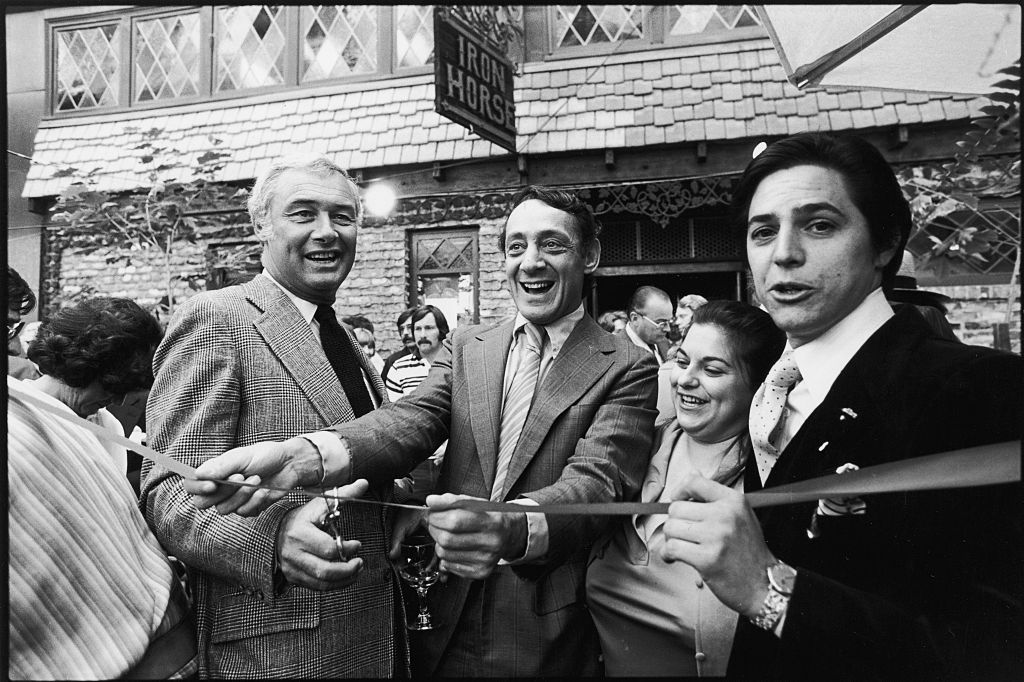 Corbis Historical, Getty Images
Corbis Historical, Getty Images
A Lesser Charge, A Public Outrage
The jury ultimately convicted Dan White of voluntary manslaughter. He was sentenced to seven years and eight months in prison and served just over five. The verdict sparked outrage, especially in San Francisco’s gay community. On the night of the verdict, thousands gathered in protest, and the event quickly turned violent in what became known as the White Night Riots.
The Backlash Begins
The “Twinkie defense” entered the cultural lexicon as a symbol of courtroom absurdity and injustice. It came to represent the idea that criminals could escape accountability through technicalities or trivial psychological claims. Judicial scholars and journalists decried the outcome, viewing it as a failure of the justice system to deliver a verdict appropriate to the seriousness of the act.
An Injustice Rooted In Bias
Critics argue that White’s lenient sentence was not simply the result of a clever judicial argument, but a reflection of institutional bias. As a white, straight former police officer, White was seen as sympathetic to the predominantly white jury. His victims—particularly Milk—represented communities often marginalized in the 1970s. The verdict was a painful reminder of whose lives were valued in court.
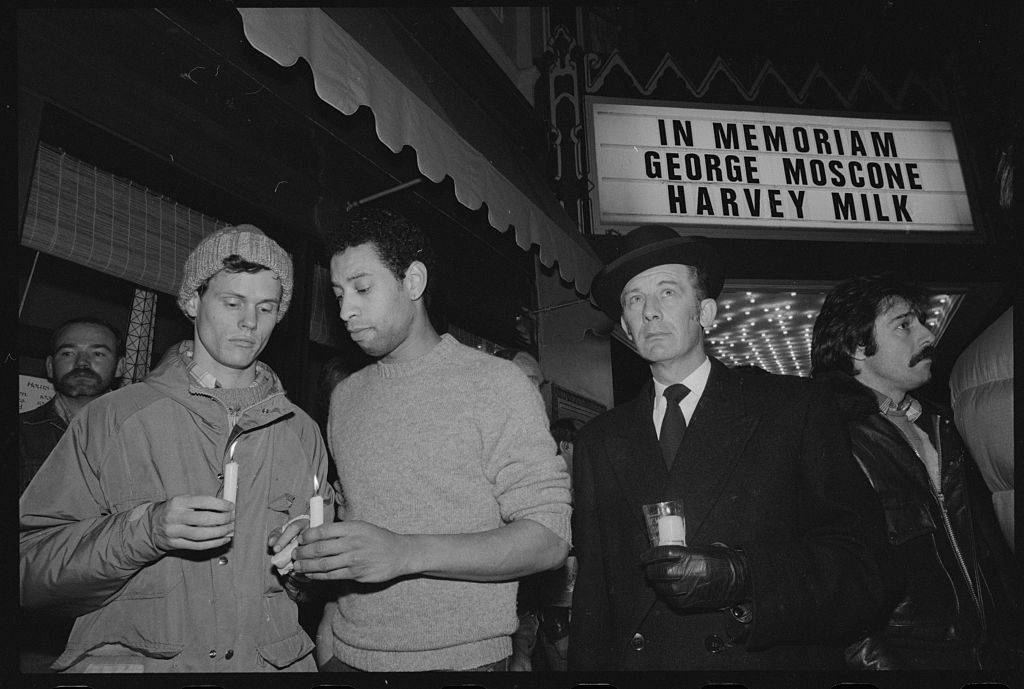 Corbis Historical, Getty Images
Corbis Historical, Getty Images
Dan White’s Troubled End
After his release from prison in 1984, White attempted to rebuild his life quietly. He returned to San Francisco, where his presence remained controversial and unwelcome. In 1985, just over a year after his release, he took his own life. His legacy remains forever tied to one of the most notorious trials in California history.
Changes In The Laws
The fallout from the case prompted changes in California law. The diminished capacity defense was severely restricted, and courts grew more cautious about allowing psychological evidence to play a determinative role in court cases. Though the phrase “Twinkie defense” remains a punchline, its legacy helped close loopholes that once allowed emotional manipulation to sway justice.

History's most fascinating stories and darkest secrets, delivered to your inbox daily.
A Bitter Legacy
The “Twinkie defense” wasn’t really about sugary snacks, but about how the system can be distorted by narrative, bias, and public perception. Dan White may not have gotten off scot-free, but he certainly didn’t face the full consequences. The case goes to show that the scales of justice can tip under the weight of the most absurd reasons.
You May Also Like:
43 Contentious Facts About the Supreme Court of the United States
Facts About Things You Won't Believe Are Legal

